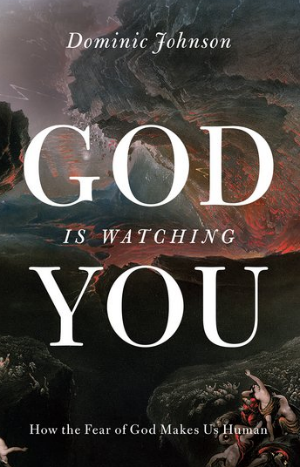God is watching you by Dominic Johnson
The fearful deity Johnson outlines may not be palatable to all, but the argument underlines that the science versus religion debate is not a straightforward division into scientists versus believers
 God is watching you: how fear of God makes us human
God is watching you: how fear of God makes us human
By Dominic Johnson
Oxford University Press
ISBN 978-0-19-989563-2
Reviewer: Stephen Copson
Coming from an evolutionary biologist stable, Dominic Johnson’s argument is broadly that as societies evolved, they became more complex and to promote co-operation between otherwise competing agents (as natural selection would suggest), the path to co-operation became guarded by powerful sanctions.
Religion, he suggests, is the strongest of these. Untrammelled individual selfishness is self-destructive. What better to encourage good behaviour than a supernatural entity that cannot be bribed or tricked or avoided but sits in judgement on the wrongdoer. In short, religion is part of human evolutionary glue.
Johnson points out how, with the exception of Western culture, far from dying out, religion remains a major driver for the majority of inhabitants of the planet. Richard Dawkins et al who see religion disappearing as scientific rationalism advances are doomed to be disappointed. Even if societies throw off the old concepts of God or gods, human beings acquire new guardians that act in an equivalent way - Big Brother takes many forms.
He suggests that even atheists are not beyond acting out of superstition or an instinctive reliance on the idea of “That’s not fair” when faced with disappointment or tragedy, without acknowledging why fairness should be expected (although I found this a less convincing chapter).
The author does explore how religion has been (and is) used to support the ruling elite, be that political or spiritual. And we should remember that whilst religion may bring a societal benefit, it has also brought untold violence with people willing to see their religion coerce and beat others into submission.
There is no support here for the truth of any religion in particular but rather that the phenomenon of religion is a universal feature. And the fearful deity Johnson outlines may not be palatable to all. And as his hypothesis proposes a type of natural rather than revealed religion, it may not be acceptable to some, but the argument does underline that the science versus religion debate is not a straightforward division into scientists versus believers.
Stephen Copson is a regional minister of the Central Baptist Association
Baptist Times, 16/06/2016